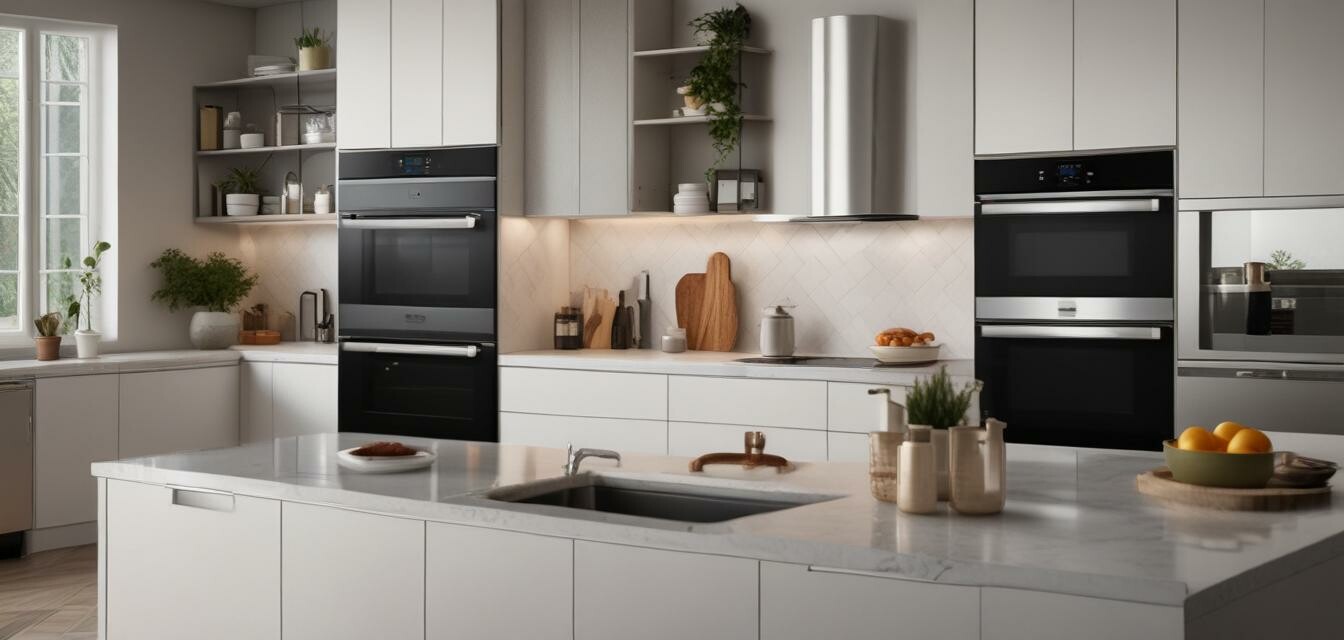
The Future of Smart Cooking with Connected Appliances
Key Takeaways
- Connected appliances enhance the cooking experience through automation and control.
- Innovative features offer convenience, efficiency, and improved cooking results.
- Integration with smart home systems creates a seamless kitchen ecosystem.
- Users can benefit from energy efficiency and time-saving capabilities.
- Staying current with technology ensures you make informed choices for your kitchen.
Explore the future of smart cooking with connected appliances, discussing innovative features and insights that every modern chef should know about. As the kitchen evolves, so do the tools we use, offering unprecedented methods to enhance our cooking skills and simplify our tasks.
The Rise of Connected Appliances
Connected appliances have revolutionized the way we cook. With the ability to communicate with each other and be controlled remotely, these devices make the kitchen a more efficient and enjoyable space. Here are the main benefits of connected appliances:
| Benefit | Description |
|---|---|
| Convenience | Control your appliances from anywhere using a smartphone or voice assistant. |
| Automation | Set cooking times and temperatures without manual input, enhancing precision. |
| Energy Efficiency | Monitor and reduce energy consumption through smart technology. |
| Recipe Integration | Sync recipes with your appliances for guided cooking experiences. |
Innovative Features to Look For
When choosing connected kitchen appliances, consider the following innovative features:
- Wi-Fi Connectivity: Seamlessly connect your appliances to your home network.
- Smart Alerts: Receive notifications on your smartphone when your dish is ready.
- Energy Monitoring: Track energy usage and find ways to reduce your bill.
- Voice Control: Use voice commands to control appliances without lifting a finger.
- Integrated Cooking Assistants: Get help with meal preparation through your appliance interfaces.
Integration with Smart Home Systems
Another exciting aspect of connected appliances is their compatibility with smart home systems. Here’s how they fit into the broader ecosystem:
- Synchronize cooking times with smart lighting and ambiance.
- Use a central hub to control multiple devices with a single app.
- Enhance your kitchen’s functionality by integrating it with other smart devices.
Energy Efficiency in Smart Cooking
Energy-efficient appliances not only help you save money, but they also contribute to a sustainable environment. Here’s why you should consider energy ratings:
| Energy Rating | Description |
|---|---|
| A+++ | Maximum efficiency, using significantly less energy. |
| A++ | Great efficiency, ideal for reducing energy bills. |
| A+ | Good efficiency, balanced performance and cost. |
| A | Basic efficiency, satisfying average needs. |
For more insights on energy-efficient appliances, consider visiting our Energy-Efficient Appliances section.
Choosing the Right Smart Appliances
To ensure you make informed decisions about your kitchen purchases, examine the following considerations:
- Compatibility with your existing devices and systems.
- Customer reviews and ratings for real-world insights.
- Long-term value and warranty coverage.
- Design and aesthetics to match your kitchen style.
Conclusion
Embracing the future of smart cooking with connected appliances opens up a world of possibilities for modern chefs. By leveraging technology, users can enhance convenience, efficiency, and ultimately, the quality of their culinary creations. Stay updated on the latest kitchen technologies by exploring our News and Trends section.
Pros
- Enhanced cooking precision
- Remote control capabilities
- Integration with smart home systems
- Energy and time efficiency
Cons
- Dependency on internet connectivity
- Initial costs may be higher.
- Technical issues can arise with outdated software.
Creating a high-tech kitchen starts with informed choices. For further guidance, check out our Buying Guides for various high-tech kitchen appliances.